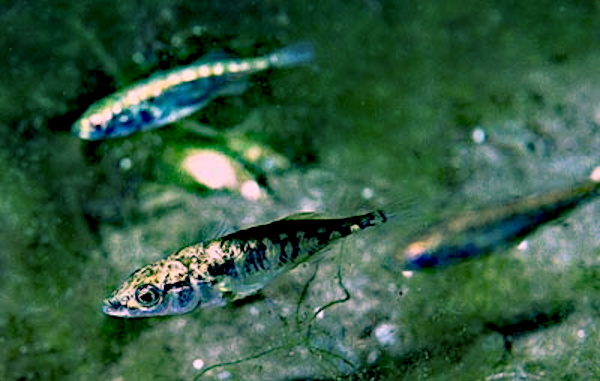
But Darwin was somehow involved.
From “Darwin in the Genome: Research On Stickleback Fish Shows How Adaptation to New Environments Involves Many Genes” (ScienceDaily, Apr. 3, 2012), we learn,
A current controversy raging in evolutionary biology is about whether adaptation to new environments is the result of many genes, each of relatively small effect, or just a few genes of large effect. A new study published in Molecular Ecology strongly supports the first “many-small” hypothesis.
Of course, it could be one way in one situation and the other way in another.
McGill University professor Andrew Hendry, from the Department of Biology and the Redpath Museum, and evolutionary geneticists at Basel University in Switzerland, studied how threespine stickleback fish adapted to lake and stream environments in British Columbia, Canada. The authors used cutting-edge genomic methods to test for genetic differences at thousands of positions (“loci”) scattered across the stickleback genome. Very large genetic differences between lake and stream stickleback were discovered at more than a dozen of these loci, which is considerably more than expected under the alternative “few-large” hypothesis.
The money shot:
As these results were obtained using new high-resolution genetic methods, it is conceivable that previous perceptions of adaptation as being a genetically simple process are simply the result of a bias resulting from previous lower-resolution genomic methods.
Well then, it’s not clear what Darwin is doing in this genome because
“I suspect that as more and more studies use these methods, the tide of opinion will swerve strongly to the view that adaptation is a complex process that involves many genes spread across diverse places in the genome,” says Prof. Hendry.
Which all just sort of happened to fall into place, right?
Note: If these changes made a whole lot of difference, the authors don’t say.